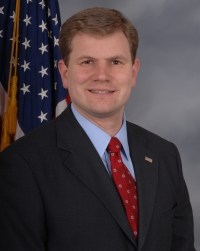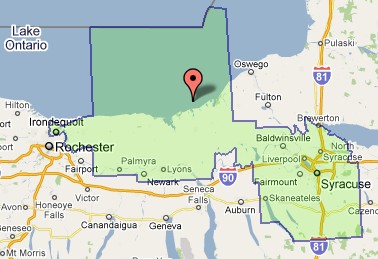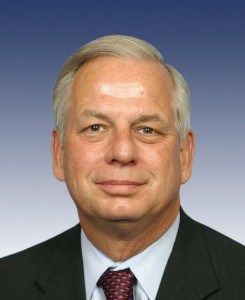
Dick Cheney's ghost is haunting the halls at the FCC these days as the agency conducts secret, closed-door meetings with just four companies to achieve "common ground" on broadband regulation. Consumers are not invited to attend.
In 2001, Vice President Dick Cheney convened the first meeting of the always-off-the-record National Energy Policy Development Group. Secretly inviting executives of the nation’s largest oil companies and lobbyists for natural gas and mining, Cheney hoped to find “common ground” on energy issues that he could translate into legislation on Capitol Hill. The final report kept the names of the self-interested corporate executives off the member roster, and predictably called for legislative actions that would directly benefit those in attendance.
In June 2010, a series of meetings with FCC Chairman Julius Genachowski’s chief of staff and executives from AT&T, Verizon, Google and Skype got underway to find “common ground” on the issues of broadband regulation and Net Neutrality. With irony, the same FCC that promised it would be “the most open and transparent ever” has barred the press and the public from participation. No consumers were invited. No minutes from the meetings will be disclosed. In short, these are “closed-door” meetings.
Even more surprising, apparently the FCC forgot to invite Comcast, the cable conglomerate most directly responsible for the agency having its authority cut from beneath it in the first place.
When the Washington Post asked Eddie Lazarus, Genachowski’s chief of staff, what was on the agenda, only vague notions about “seizing the opportunity” to find common agreement on issues like Net Neutrality were disclosed. Lazarus added the big four were also there to give input on Congress’ interest in revising the Communications Act.
That’s great news for thousands of Washington’s lobbyists who helped fashion the disastrous 1996 Communications Act that represented Christmas morning for corporate interests — more deregulation in the broadcast business which lead to massive consolidation, giveaways to the cable and telephone industry, and more handouts to wireless companies.
What was supposed to be a law to govern the public interest of the airwaves and telecommunications turned into a lobbyist feeding frenzy. Consumers couldn’t afford the price of admission. Reopening the Communications Act means telecom companies from coast to coast can get busy working on their Christmas wish lists for the 500+ Secret Santas that live and work in the legislative branch of government these days, especially on the Republican side of the aisle.
Of course, the real outrage here is the FCC’s hope that the four companies can reach some agreement on contentious broadband issues and then the agency can do away with the entire matter of broadband regulatory reform. Why fight the battle if you can compromise the issue away? No matter what the four agree on, there are still many outstanding issues relating to consumer protection which cannot be negotiated by four corporate entities.
 Those on both sides of the broadband regulatory issue are appalled at the secrecy. Brett Glass, who opposes Net Neutrality and runs a WISP in Wyoming asked, “What happened to Chairman Genachowski’s promises of “the most open and transparent FCC ever?”
Those on both sides of the broadband regulatory issue are appalled at the secrecy. Brett Glass, who opposes Net Neutrality and runs a WISP in Wyoming asked, “What happened to Chairman Genachowski’s promises of “the most open and transparent FCC ever?”
Indeed.
Lazarus tried his best to paper over the serious implications of holding secretive meetings in a blog post:
Senior Commission staff are making themselves available to meet with all interested parties on these issues. To the extent stakeholders discuss proposals with Commission staff regarding other approaches outside of the open proceedings at the Commission, the agency’s ex parte disclosure requirements are not applicable. But to promote transparency and keep the public informed, we will post notices of these meetings here at blog.broadband.gov. As always, our door is open to all ideas and all stakeholders.
In part, here was our response to Mr. Lazarus:
There is no transparency or openness in closed-door meetings that bar the public from participation. It’s just more of the same inside-the-beltway deal-making that will undercut consumers. Believe it or not, there is more at stake here than whatever issues Verizon, AT&T, Google, and eBay have to discuss.
And what if the four agreed on anything (improbable)? Does that mean the rest of us are expected to go along to get along?
The FCC’s door is -not- open to all ideas and stakeholders when the chairman’s chief of staff only invites four voices to his table.
There is nothing open and transparent about secret meetings peppered with excuses about why disclosure rules do not apply.
[Update 10:30am ET Wednesday — The DailyFinance quotes a government source: “We fu*ked up,” a government source familiar with the meetings told DailyFinance. “We deserve the bad press. It was a process foul at a minimum.”]


 Subscribe
Subscribe




